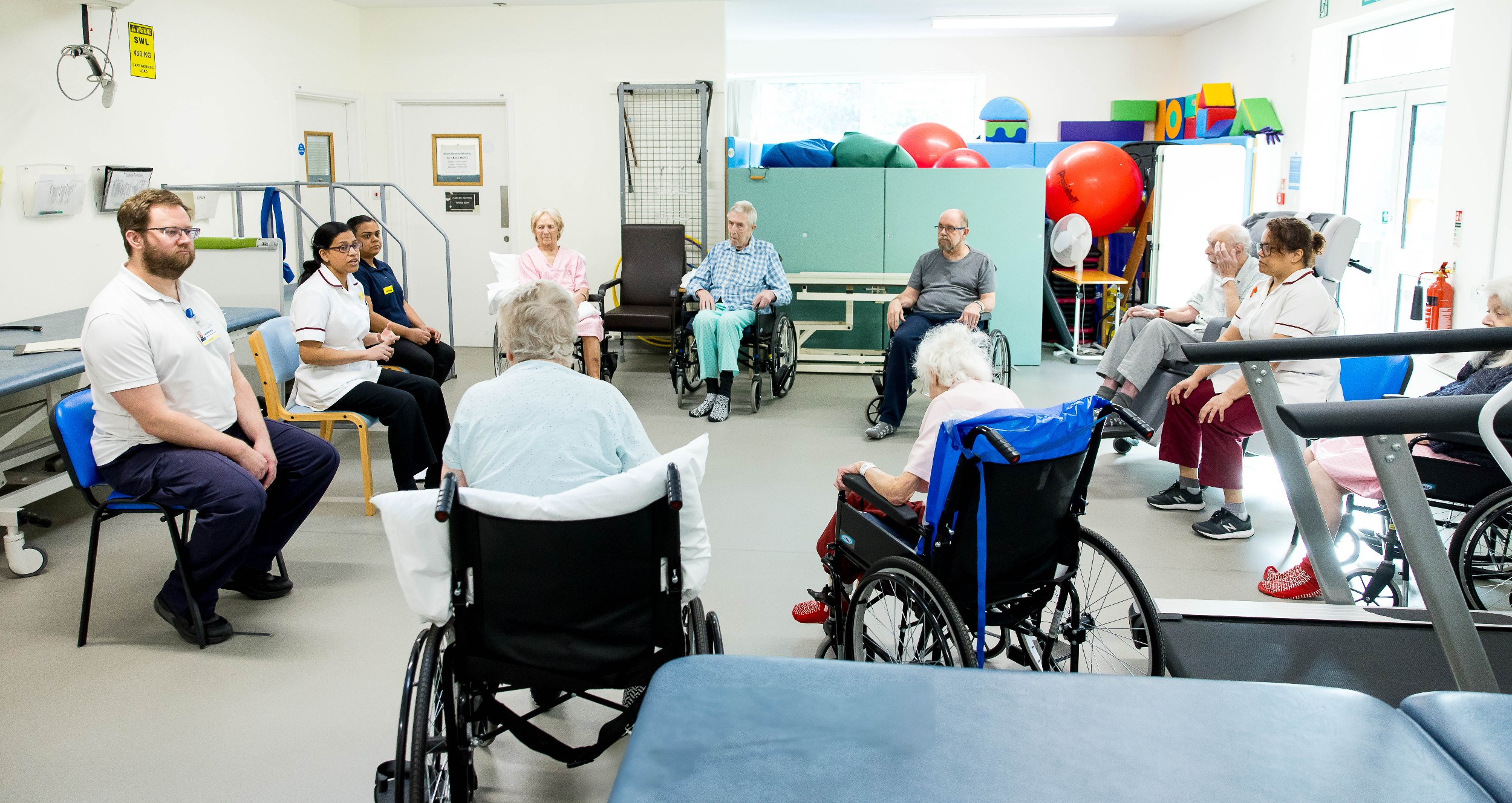ABIRS - what we do
I think I have had a brain injury
People with a confirmed diagnosis of a newly acquired brain injury are usually referred to ABIRS by their GP or the brain injury consultant straight away. If you have hurt your head and have concerns about the health of your brain, it is best to talk to your GP first and discuss if a referral to the brain injury consultant or ABIRS would be helpful for you.
If you have had a brain injury in the past and would like further support then you probably find the information on Headway UK most useful.
Brain injury education group
The brain injury education group provides information, for both patients and their relatives or carers on the nature and consequences of brain injury. The group takes place in person at Poole Community Clinic, and online, several times a year (in-person meetings can be arranged in west Dorset depending on demand).
The group outlines common consequences people experience following brain injury and strategies that people can use to help manage some of these effects.
Participants find value in meeting others
Once you have had your initial assessment with the ABIRS you will automatically be invited to attend the group as the first step on your rehab journey.
Understanding brain injury
The brain weighs approximately three pounds. It has the consistency of blancmange.
It looks like two halves of a walnut and has two hemispheres – left and right.
Your brain consists of around 86 billion nerve cells called neurons. Neurons gather and transmit electrochemical signals – like the gates and wires in a computer.
An acquired brain injury (ABI) is any brain injury that is not present at birth or degenerative. It can be caused by:
- trauma to the head – often the result of road accidents, assaults, sporting accidents, industrial accidents and falls.
- brain tumours
- oxygen deprivation (hypoxia) – sometimes brought on by heart attacks, carbon monoxide poisoning, respiratory illness or being underwater for a long period
- infections
- exposure to toxic substances such as drugs, carbon monoxide, solvents and pesticides
- strokes.
Common physical consequences following an acquired brain injury:
- fatigue
- pain, headaches
- dizziness, problems with balance, nausea
- change in sleep patterns
- blurred vision and other altered senses
- speech difficulties
- difficulty with mobility: sitting, standing, walking, running.
Helpful responses
- Planning and pacing – plan your day and prioritise the most important tasks when you feel most alert. Factor in breaks and rest periods, and don’t take on too much. Work within your limits
- regular exercise – cycling, fast walking, swimming and so on. Plan in what you can manage – 30 minutes a day is a good start. Also plan in some exercises to build strength, such as gardening, yoga and housework
- good sleep – have a warm drink and maybe a bubble bath before going to bed. And remember to switch off your phone
- relaxation – do whatever works for you. This could involve listening to music, doing puzzles, arts and craft, baking, gardening or yoga. Spend time with family, friends and pets, and get plenty of rest.
Acquired brain injury can sometimes cause forgetfulness and affect people’s ability to concentrate or process information.
Helpful responses
- Concentration – minimise distractions and write things down if necessary. Pace yourself and relax your breathing
- memory – use rhymes and associations to help you remember things. Repeat something several times to yourself. Divide things into groups
- processing information – minimise distractions and work or watch something at the best time for you. Take regular breaks. Don’t be afraid to talk to yourself, if that helps you understand something
- language – if you have difficulty finding the right words or following a conversation, give yourself time. Remove background distractions if you can, and don’t be afraid to ask people to repeat themselves.
Acquired brain injury can lead to a variety of impacts on our emotions and behaviour. It can make people angry, irritable, impulsive, self-centred and anxious or agitated. It can cause depression, and result in poor motivation and lack of self-control.
All these changes are common and understandable. There is a huge variation between what different people experience.
Helpful responses
- Anxiety and depression – talk to others, and investigate coping strategies which might work for you. Set yourself goals and make practical changes that might enhance your life
- anger and irritability – do regular physical exercise, try yoga and breathing exercises, and avoid alcohol. Explore new activities to help relieve stress, and get lots of rest and relaxation. Step out of situations which might be making you angry.